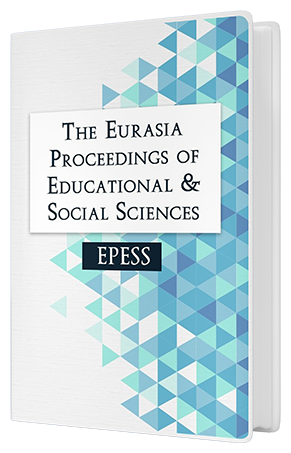Effect of Technology Assisted Micro Teaching Practıces on the Perception of Technology Usage of Social Studies Teacher Candidates
Keywords:
Micro-teaching, Technology, Social studies teacher candidatesAbstract
In the last decade, traditional programs applied in teacher education in the light of rapidly developing technological developments are no longer able to provide all necessary qualifications needed by the candidate teachers in meeting the 21st century community demands during the teaching process. In this respect, it is necessary to increase the related equipment and awareness of the students while they are teacher candidates in the period of teacher training which is in teaching profession and preparation. This work; The purpose of this study was to investigate the effect of technology assisted micro-teaching practices on the perceptions of social studies teacher candidates on technology usage. Qualitative research techniques were utilized in the research. The study group of the study consisted of 4th grade social studies teacher candidates (n = 45). The data were obtained using the semi-structured interview form. The data were interpreted with descriptive analysis technique. They found that knowledge about selecting or preparing technological tools for the use of intelligent boarding and lecture presentation was the most increased in the direction of findings from the research. As a result of technology-assisted micro-teaching practices, it has been seen that teacher candidates perceive themselves adequately for the use of technology and there is a slight increase in their perceptions after their implementation. In the light of the emerging conclusions, proposals are presented such that the courses containing these applications which contribute to the field of technology use in the classroom should be given more place in the teaching of social studies.Downloads
Published
Issue
Section
License
Copyright (c) 2018 The Eurasia Proceedings of Educational and Social Sciences

This work is licensed under a Creative Commons Attribution-NonCommercial-ShareAlike 4.0 International License.
The articles may be used for research, teaching, and private study purposes. Any substantial or systematic reproduction, redistribution, reselling, loan, sub-licensing, systematic supply, or distribution in any form to anyone is expressly forbidden. Authors alone are responsible for the contents of their articles. The journal owns the copyright of the articles. The publisher shall not be liable for any loss, actions, claims, proceedings, demand, or costs or damages whatsoever or howsoever caused arising directly or indirectly in connection with or arising out of the use of the research material. All authors are requested to disclose any actual or potential conflict of interest including any financial, personal or other relationships with other people or organizations regarding the submitted work.




